
A group of five lawyers, who regularly stroll down after-hours to a ‘drinking joint’ from their respective offices, to ‘unwind’ met at their usual spot last Friday. The following is a part of their conversion:
JOHN: (a rotund, normally cheerful fellow) “This country, I tell you, is something else. In fact I couldn’t believe my ears when I heard the news.
JELILI: (a very dark skinned fellow from Kogi State) “What news is that? Could it be abour the removal of police orderlies from High Court judges and magistrates?
JOHN:- Yes, that is it? Can you believe that?
CHUKS: (a tall and heavily bearded fellow who had made it known for ages that he was an incurable pessimist, at least when it comes to matters pertaining to Nigeria’s progress) ‘But are you surprised? Why should any one be? Or are we no longer in Nigeria. But sensible has always been senseless here and senseless, sensible
AJUMA: (the revolutionary of the group, who despite his successful law practice which grosses him more than thirty million naira annually, refuses, fails and neglects to abandon the socialist beliefs that he embraced almost two decades ago.) It is another proof that for a psendo-capitalist state, Nigeria’s comprador class and Western Satelite government is the silliest ever”.
SHETTY: (a Kanuri, (real name, Shettima) And who for his being born, bread and buttered in Lagos, liked to call himself a ‘Yonuri (Yoruba and Kanuri). “Hmn, this beer is especially nice this evening. When are they bringing the isi-ewu now? Or they want me to waste this beer?
JOHN: (laughing loudly) Haba Shetty, beer and isi-ewu is nothing compared to the issue at hand.
SHETTY: You are not serious. So because you guys are worried about the small matter of withdrawal of police orderlies from judges and magistrates, a man should not enjoy his evening.
JOHN and JELILI: (together) Small matter? We are talking of the security of judges here, friend.
CHUKS: Sips a gin laced tonic water before whistling a doleful time of Nigeria, e go better. E go better.
AJUMA: Can any one tell me how Nigeria can ever get better, when ever the manager’s of the post-colonial state not only hate the masses but are foolish enough to open delicate ranks of their elitist formations to avoidable dangers of course we know that judges being senior minions of law and order, which upholds the political establishment, are pillars of the exploitative dominant class of bourgeois oppressions.
SHETTY: (hastily downing his cup shouted) “Binukonu nonsense.
JETTY: (turning to Shetty) Are you drink nonsense already?
SHETTY: It is not just nonsense, but letter nonsense. Instead of you guys putting on your thinking caps and appreciating the profundity and social progressiveness of the policy of government you are busy here diluting your beer and enjoyment liberally with unfounded lamentation.
JOHN: Whaat? Mi o gboyinbo (Do I get you right?)
JELILI: (turning to Chuks and Shetty) “Lets get him out of here. Our man is drunk.
JOHN: You know Shetty is a rascal. He’s probably pulling our legs.
SHETTY: I am not joking. But you may take it as you like it. By the way, mmm, this isi-ewu is not bat at all. Chuks, should I give you the eye-balls?
CHUKS: Thanks, but you can keep your eye-balls to yourself. But I really like to know why you see nothing wrong in the government’s new policy of withdrawing police from judges. I thought the dements of the policy are plain and obvious. And to think that of us including even Ajuma except you are al agreed that it is wrong more by government
JELILI: In fact the president of the bar, said it is a thoughtless policy.
AJUMA: But that’s thoughtless of the NBA president to have said. Of course I agree with his conclusion that the policy well from the perspective of maintaining the status quo, derogates from that. But it is not a thoughtless policy. Empiriasm does not and cannot support such a patently facile conclusion. In fact from the news, it is clean the policy was adopted by the Federal Executive Council, the highest formal decision making of the federal government, so much thought, went into the making and adoption of the policy. So the problem was not the want of thought, but the want of quality of thought.
JOHN: (smiling broadly and grinning infectiously) Ajums! Ajums! Oyinbo po (too much ‘grammar’). I think this is going to be a very lovely evening
CHUKS: Shetty I am still waiting for you. Why do you say the policy is good?
SHETTY: Good? Not just good. Fantastic.
JOHN: (slightly irritated) What is fantastic about the stupid policy? Let’s hear you.
SHETTY: (after a loud, cheerful and full bodied burp) Excuse me gentlemen. But let’s do it this way, give me your reasons for being against the policy and I will give you my counter arguments
CHUKS: A judge without security is just a sitting duck. Such a judge is unnecessarily exposed to intimidation and real fear of attack in adjudication of certain cases. And only a few will not succum for fear for the safety of themselves and their families.
SHETTY: (grandly) Any more?
CHUKS: That basically all. You don’t need to call a whole village of witnesses to establish a valid point.
JOHN: (grinning even more excitedly) Splendid! Who is man enough to take on Shetty, the lone ranger!
CHUKS: There is only one base reason. The policy if executed will compromise the security of judges and indirectly undermine the administration of justice in the country.
SHETTY: I am sorry but may I quickly ask you to explain further?
CHUKS: Thank you. If police Orderlies are withdrawn from judges then judges will have no security again. They are thus exposed to dangers of physical attack.
AJUMA: We have heard the thesis, let’s now hear the anti-thesis.
SHETTY: I have many reasons why I agree with the policy First I want to say that judges generally as a class of people or professionals, are not one of those I will call professionals in the high-risk category, despite popular opinion to the contrary. The professionals in the high risk categories are politicians, Business-men and women, journalist, security agents and tertiary institutions lecturer. The truth is that there are very few cases of judges and magistrates suffering physical attacks, talkless of being attacked because they are doing their job.
JELILI: That’s so because all along, judges have always had police orderlies
JOHN: (hastily) Don’t interrupt Shetty. I am the moderator here.
SHETTY: It is not the police orderlies that have prevented attack on judges. Politicians, especially high political office holders have police orderlies too, yet they suffer attacks regularly. So it is not the presence of the solitary police orderlies attach to the individual judges that have prevented attacks on judges. The reason for that is because traditionally people have a lot of respect for judicial institutions and law enforcement agencies and agents. But if any one insists that judges must have police orderlies to ensure their safety, then we should be prepared to assign orderlies to bankers, businessmen, journalists and teachers, who are even much more prone to attacks than judges and magistrates mind you, Nigeria is a republic and we should try as much as possible to promote equality and fairness amongst equality and fairness amongst all men
AJUMA: Wonders shall never end. See a comprador talking like a comrade!
CHUKS: Are you saying that judges are folks like any other?
JOHN: Will you guys shut up? Stop interrupting Shetty
SHETTY: (taking some sips of his drink) Of course judges are important. But us their work more valuable than the finance and business people. Are they greater than teachers, the source of knowledge or more valuable than journalist, the owners of the fourth estate of the republic and vital cheek on the madness of government?
JOHN: Shetty, don’t digress, continue making your point
SHETTY: Bless you, Mr. Moderator. I have always been of the opinion that a community should prefer corporate security as a policy than striving towards the protection of key individual, no matter who he is should be dependent on the safety and well being of the whole and not the other way round.
If our society is safe, so much for everybody barber or bishop, judge or janitor doctor or dancer, lawyer or labourer lets get real here how many judges are ever in any real danger, caused by the circumstances of their jobs. Few, you will agree with me-may be those ones handling narcotics, terrorism and fraud/corruption cases. Generally this is still a safe, almost innocent country, in terms of security concerns, compared with some other countries.
In consequence, the provision of security personnel for judges and magistrates for the most time is merely cosmetic and symbolic.
Government usually give only one security detail to a judge. Ask yourself in a security risk situation, how effect we is a single detail? Not very effective, I tell you, since assculants often attack in groups, with minimum of two.
CHUKS: Don’t you know that provisions of the police orderlies to judges enhance the authority of judges as judicial offers?
AJUMA: I don’t agree with that point, Chuks. Only a Monarchist and a reactionary interested in preserving and enjoying the unequal privileges of the dominant class can advance such an argument. Its another way for saying the importance of a royal is enhanced by the arrays of courtiers about him. Remember Chuks, this is a republic!
SHETTY: God bless you Ajuma. The importance of a judge should not be tied to the company of security in his presence. Otherwise you’ve reduced or even diverted the significance of security to a matter of status symbol, an indication of a judge’s so called “big-manisin”.
Unfortunately one of the reasons why some people wanted to become judges was as mundane as having a security detail follow them about in public.
Infact as I see it any sensible judge will know that even battalion of police, soldiers, ‘plus including’ Navy, Airforce etc cannot guarantee his security. A better guarantee is dedication to work, honesty and fairness Any other security form is a mirage.
At any rate as I have pointed out, Nigeria is still relatively speaking, a safe country. Nigeria is no Colombia or Italy or Spain etc where judges are kidnapped, killed and maimed for one reason or the other.
In fact government should be appreciated and commended for trying to remind our people that Nigeria is not as unsafe as some outsiders like to believe. Indeed many of the security details posted to judges as orderlies do pretty little security work. Many of them are just glorified houseboys, messengers and unofficial personal assistants of these judges.
Let them go back to their stations and beats where they are more needed and where they would be more useful in providing corporate security for all. My prayer is that government will not succumb to the pressure and blackmail of those of you who want police-men to follow judges about.
JELILI: But you have to admit Shetty, an unprotected judge is liable to attack. That’s why a judge, recently refused to hear a particular criminal case because he had no police security
SHETTY: If you ask me, that judge is not serious. When he took up appointment as a judge and took oath to do his job without fear or favour, was with the provision that “when security is provided”? if the judge is complaining of lack of security and the security is provided, will she agree that prosecution of the matter should not commence until police security is thrown around the prosecutors?
Or is that judge saying, before becoming a judge, he never took up any hazardous case(s) was he going about with security details then? In all the recent difficult political and anti-corruption cases, which security details did government provide for lawyers prosecuting these cases?
I rest my case and conclude that people are just making a mountain out of a molehill and crying wolf where there is but just a small rat, when they say that government should withdraw police orderlies from judges. Mind you, government is not removing orderlies from the court-rooms. So why all this fuss?
JOHN: (a rotund, normally cheerful fellow) “This country, I tell you, is something else. In fact I couldn’t believe my ears when I heard the news.
JELILI: (a very dark skinned fellow from Kogi State) “What news is that? Could it be abour the removal of police orderlies from High Court judges and magistrates?
JOHN:- Yes, that is it? Can you believe that?
CHUKS: (a tall and heavily bearded fellow who had made it known for ages that he was an incurable pessimist, at least when it comes to matters pertaining to Nigeria’s progress) ‘But are you surprised? Why should any one be? Or are we no longer in Nigeria. But sensible has always been senseless here and senseless, sensible
AJUMA: (the revolutionary of the group, who despite his successful law practice which grosses him more than thirty million naira annually, refuses, fails and neglects to abandon the socialist beliefs that he embraced almost two decades ago.) It is another proof that for a psendo-capitalist state, Nigeria’s comprador class and Western Satelite government is the silliest ever”.
SHETTY: (a Kanuri, (real name, Shettima) And who for his being born, bread and buttered in Lagos, liked to call himself a ‘Yonuri (Yoruba and Kanuri). “Hmn, this beer is especially nice this evening. When are they bringing the isi-ewu now? Or they want me to waste this beer?
JOHN: (laughing loudly) Haba Shetty, beer and isi-ewu is nothing compared to the issue at hand.
SHETTY: You are not serious. So because you guys are worried about the small matter of withdrawal of police orderlies from judges and magistrates, a man should not enjoy his evening.
JOHN and JELILI: (together) Small matter? We are talking of the security of judges here, friend.
CHUKS: Sips a gin laced tonic water before whistling a doleful time of Nigeria, e go better. E go better.
AJUMA: Can any one tell me how Nigeria can ever get better, when ever the manager’s of the post-colonial state not only hate the masses but are foolish enough to open delicate ranks of their elitist formations to avoidable dangers of course we know that judges being senior minions of law and order, which upholds the political establishment, are pillars of the exploitative dominant class of bourgeois oppressions.
SHETTY: (hastily downing his cup shouted) “Binukonu nonsense.
JETTY: (turning to Shetty) Are you drink nonsense already?
SHETTY: It is not just nonsense, but letter nonsense. Instead of you guys putting on your thinking caps and appreciating the profundity and social progressiveness of the policy of government you are busy here diluting your beer and enjoyment liberally with unfounded lamentation.
JOHN: Whaat? Mi o gboyinbo (Do I get you right?)
JELILI: (turning to Chuks and Shetty) “Lets get him out of here. Our man is drunk.
JOHN: You know Shetty is a rascal. He’s probably pulling our legs.
SHETTY: I am not joking. But you may take it as you like it. By the way, mmm, this isi-ewu is not bat at all. Chuks, should I give you the eye-balls?
CHUKS: Thanks, but you can keep your eye-balls to yourself. But I really like to know why you see nothing wrong in the government’s new policy of withdrawing police from judges. I thought the dements of the policy are plain and obvious. And to think that of us including even Ajuma except you are al agreed that it is wrong more by government
JELILI: In fact the president of the bar, said it is a thoughtless policy.
AJUMA: But that’s thoughtless of the NBA president to have said. Of course I agree with his conclusion that the policy well from the perspective of maintaining the status quo, derogates from that. But it is not a thoughtless policy. Empiriasm does not and cannot support such a patently facile conclusion. In fact from the news, it is clean the policy was adopted by the Federal Executive Council, the highest formal decision making of the federal government, so much thought, went into the making and adoption of the policy. So the problem was not the want of thought, but the want of quality of thought.
JOHN: (smiling broadly and grinning infectiously) Ajums! Ajums! Oyinbo po (too much ‘grammar’). I think this is going to be a very lovely evening
CHUKS: Shetty I am still waiting for you. Why do you say the policy is good?
SHETTY: Good? Not just good. Fantastic.
JOHN: (slightly irritated) What is fantastic about the stupid policy? Let’s hear you.
SHETTY: (after a loud, cheerful and full bodied burp) Excuse me gentlemen. But let’s do it this way, give me your reasons for being against the policy and I will give you my counter arguments
CHUKS: A judge without security is just a sitting duck. Such a judge is unnecessarily exposed to intimidation and real fear of attack in adjudication of certain cases. And only a few will not succum for fear for the safety of themselves and their families.
SHETTY: (grandly) Any more?
CHUKS: That basically all. You don’t need to call a whole village of witnesses to establish a valid point.
JOHN: (grinning even more excitedly) Splendid! Who is man enough to take on Shetty, the lone ranger!
CHUKS: There is only one base reason. The policy if executed will compromise the security of judges and indirectly undermine the administration of justice in the country.
SHETTY: I am sorry but may I quickly ask you to explain further?
CHUKS: Thank you. If police Orderlies are withdrawn from judges then judges will have no security again. They are thus exposed to dangers of physical attack.
AJUMA: We have heard the thesis, let’s now hear the anti-thesis.
SHETTY: I have many reasons why I agree with the policy First I want to say that judges generally as a class of people or professionals, are not one of those I will call professionals in the high-risk category, despite popular opinion to the contrary. The professionals in the high risk categories are politicians, Business-men and women, journalist, security agents and tertiary institutions lecturer. The truth is that there are very few cases of judges and magistrates suffering physical attacks, talkless of being attacked because they are doing their job.
JELILI: That’s so because all along, judges have always had police orderlies
JOHN: (hastily) Don’t interrupt Shetty. I am the moderator here.
SHETTY: It is not the police orderlies that have prevented attack on judges. Politicians, especially high political office holders have police orderlies too, yet they suffer attacks regularly. So it is not the presence of the solitary police orderlies attach to the individual judges that have prevented attacks on judges. The reason for that is because traditionally people have a lot of respect for judicial institutions and law enforcement agencies and agents. But if any one insists that judges must have police orderlies to ensure their safety, then we should be prepared to assign orderlies to bankers, businessmen, journalists and teachers, who are even much more prone to attacks than judges and magistrates mind you, Nigeria is a republic and we should try as much as possible to promote equality and fairness amongst equality and fairness amongst all men
AJUMA: Wonders shall never end. See a comprador talking like a comrade!
CHUKS: Are you saying that judges are folks like any other?
JOHN: Will you guys shut up? Stop interrupting Shetty
SHETTY: (taking some sips of his drink) Of course judges are important. But us their work more valuable than the finance and business people. Are they greater than teachers, the source of knowledge or more valuable than journalist, the owners of the fourth estate of the republic and vital cheek on the madness of government?
JOHN: Shetty, don’t digress, continue making your point
SHETTY: Bless you, Mr. Moderator. I have always been of the opinion that a community should prefer corporate security as a policy than striving towards the protection of key individual, no matter who he is should be dependent on the safety and well being of the whole and not the other way round.
If our society is safe, so much for everybody barber or bishop, judge or janitor doctor or dancer, lawyer or labourer lets get real here how many judges are ever in any real danger, caused by the circumstances of their jobs. Few, you will agree with me-may be those ones handling narcotics, terrorism and fraud/corruption cases. Generally this is still a safe, almost innocent country, in terms of security concerns, compared with some other countries.
In consequence, the provision of security personnel for judges and magistrates for the most time is merely cosmetic and symbolic.
Government usually give only one security detail to a judge. Ask yourself in a security risk situation, how effect we is a single detail? Not very effective, I tell you, since assculants often attack in groups, with minimum of two.
CHUKS: Don’t you know that provisions of the police orderlies to judges enhance the authority of judges as judicial offers?
AJUMA: I don’t agree with that point, Chuks. Only a Monarchist and a reactionary interested in preserving and enjoying the unequal privileges of the dominant class can advance such an argument. Its another way for saying the importance of a royal is enhanced by the arrays of courtiers about him. Remember Chuks, this is a republic!
SHETTY: God bless you Ajuma. The importance of a judge should not be tied to the company of security in his presence. Otherwise you’ve reduced or even diverted the significance of security to a matter of status symbol, an indication of a judge’s so called “big-manisin”.
Unfortunately one of the reasons why some people wanted to become judges was as mundane as having a security detail follow them about in public.
Infact as I see it any sensible judge will know that even battalion of police, soldiers, ‘plus including’ Navy, Airforce etc cannot guarantee his security. A better guarantee is dedication to work, honesty and fairness Any other security form is a mirage.
At any rate as I have pointed out, Nigeria is still relatively speaking, a safe country. Nigeria is no Colombia or Italy or Spain etc where judges are kidnapped, killed and maimed for one reason or the other.
In fact government should be appreciated and commended for trying to remind our people that Nigeria is not as unsafe as some outsiders like to believe. Indeed many of the security details posted to judges as orderlies do pretty little security work. Many of them are just glorified houseboys, messengers and unofficial personal assistants of these judges.
Let them go back to their stations and beats where they are more needed and where they would be more useful in providing corporate security for all. My prayer is that government will not succumb to the pressure and blackmail of those of you who want police-men to follow judges about.
JELILI: But you have to admit Shetty, an unprotected judge is liable to attack. That’s why a judge, recently refused to hear a particular criminal case because he had no police security
SHETTY: If you ask me, that judge is not serious. When he took up appointment as a judge and took oath to do his job without fear or favour, was with the provision that “when security is provided”? if the judge is complaining of lack of security and the security is provided, will she agree that prosecution of the matter should not commence until police security is thrown around the prosecutors?
Or is that judge saying, before becoming a judge, he never took up any hazardous case(s) was he going about with security details then? In all the recent difficult political and anti-corruption cases, which security details did government provide for lawyers prosecuting these cases?
I rest my case and conclude that people are just making a mountain out of a molehill and crying wolf where there is but just a small rat, when they say that government should withdraw police orderlies from judges. Mind you, government is not removing orderlies from the court-rooms. So why all this fuss?
































































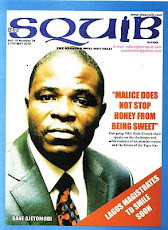

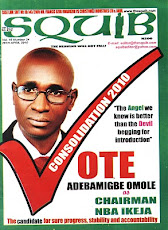
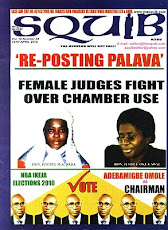
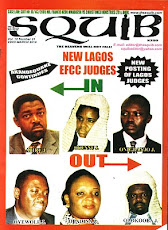
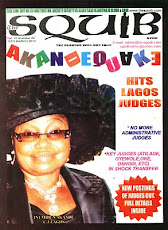


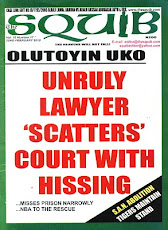
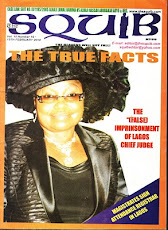
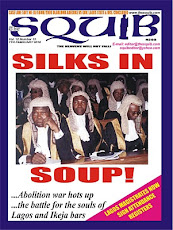


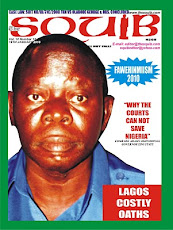



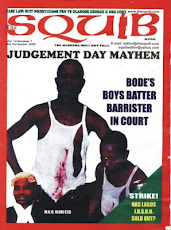


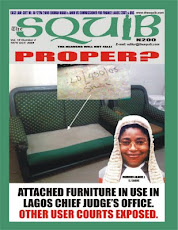






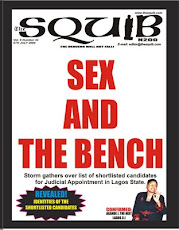


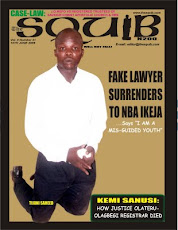

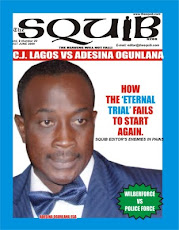
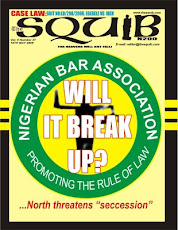
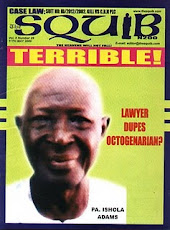





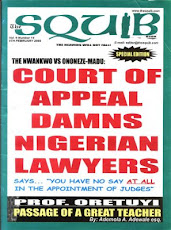








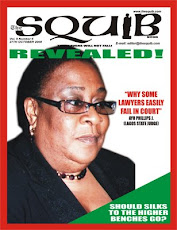

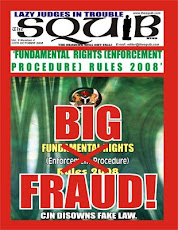
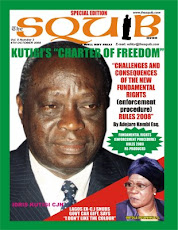
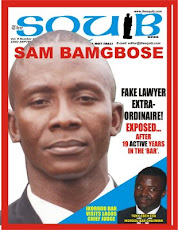


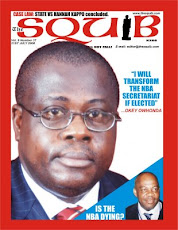

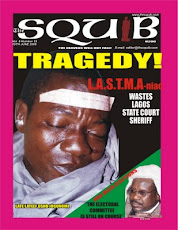
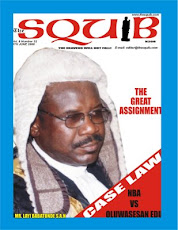



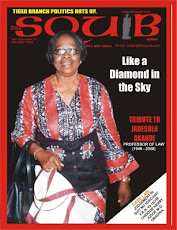
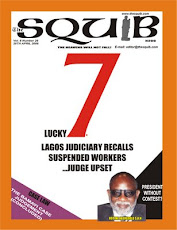

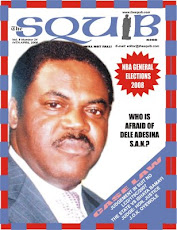

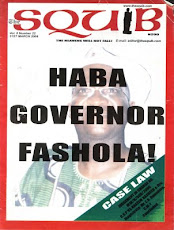

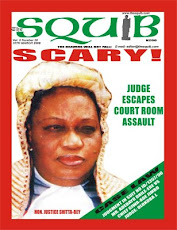




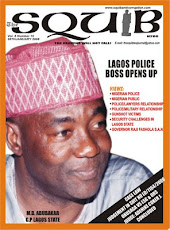
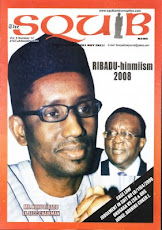










No comments:
Post a Comment